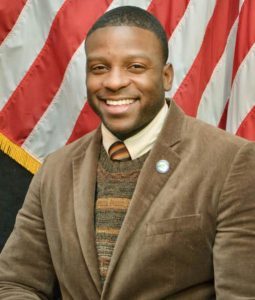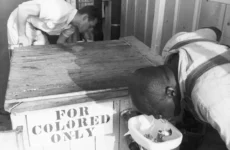by Niagara Falls City Councilman Ezra P. Scott, Jr.
Released on October 7th 2016, I recently had an opportunity to view The Birth of a Nation as a social study of American History.
Unlike the original 1915 American silent film The Birth of a Nation (The Clansman), that was directed and co-produced by D. W. Griffith and screened at the White House, this version by Nate Parker focuses on the life of Rev. Nat Turner and takes place in the 1800’s in Southampton County, Virginia.
Turner’s owner Benjamin Turner was paid by other slave owners to travel to various plantations to subdue the slaves using Bible scripture. After witnessing many traumatic experiences of how his people were treated, Turner organized an insurrection to free his people, realizing that “For every scripture they [slave owners] have used to keep us in bondage, there’s a scripture that’s going to liberate us.” Turner’s insurrection was only one of over 250 slave revolts, rarely mentioned in American History books. As chronicled in the book Black Rebellion by author Sujan Dass, “We’re taught that Africans accepted their condition as slaves. We’re taught that most slaves didn’t give their new masters much trouble. But the truth is, thousands fought daily, from the ships to their graves.”
Watching this film was an empowering experience to see how one man helped organize one of these movements to fight injustice. A movement bearing the same Patrick Henry-like posture of “Give me liberty, or give me death!” Like many of us, men and women, who have been dissatisfied with the politics and divisiveness within our cities, regions and throughout our nation, we must also organize to change this status quo. It’s what this country was founded upon.
I recently had the privilege of attending the Congressional Black Caucus in Washington, DC, and watched Ruth Odom Bonner, the daughter of a runaway slave, ring the bell for the opening of the National Museum of African-American History and Culture.
As her family of four generations stood there, starting with a 7-year-old Christine and ending with 99-year-old Ruth, I was reminded that like the Jewish Holocaust, American slavery and its remnants are not buried in a long forgotten distant past. In fact, this peculiar government institution helped shape many of the belief systems, attitudes, institutions and American economy of today. Both the original 1915 version and the present day release of The Birth of a Nation expound upon this historical narrative.
In closing, I urge you all to view The Birth of a Nation with hopes that the strength, courage and organizing ability of Rev. Nat Turner motivates you to play a larger part in the progress of our nation, and city in particular. In the words of President Obama at the opening of the National Museum of African-American History and Culture, “And together, we’ll learn about ourselves, as Americans — our sufferings, our delights, and our triumphs. And we’ll walk away better for it, better because of the better grasp of history. We’ll walk away that much more in love with this country, the only place on Earth where this story could have unfolded.”




















